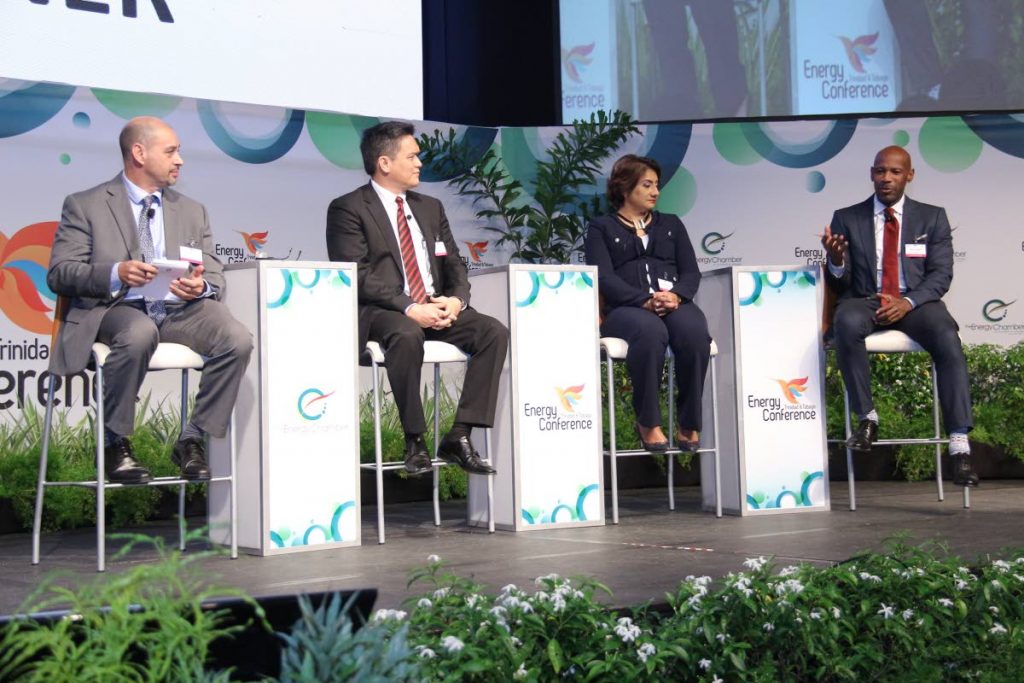Banking sector addresses access to financing

Access to financing is sometimes difficult for players in Trinidad and Tobago's energy sector, particularly for smaller service providers, but First Citizens Group CEO Karen Darbasie says this is not due to a lack of willingness by local banks.
"What we need to understand is that energy sector companies are very complicated – it's not like providing a mortgage on a house."
"The financials of the entities are volatile because commodity prices are volatile and because the supply chain dynamics change based on global market conditions, which the local entity does not have control of. And when the banks look at the small service providers, because we can't take collateral because it's not a house that we could take that we can sell, we need to see certainty of cash flows or at least some level of predictability."
Darbasie explained that banks would therefore "like to see contracts in place for supply of (goods/services) to the larger companies in order to facilitate the banks financing companies that are the smaller, value-added, local content portion of the value chain."
She was responding to a question on Tuesday during the closing plenary panel discussion on day two of the 2018 Energy Conference, hosted by the TT Energy Chamber at Hyatt Regency, Port of Spain.
Continuing on her point about the value chain, the First Citizens CEO told the conference room full of industry players that if one were to compare the value-added aspect of the local financial system to that of others within the Caribbean and Latin America, "the TT financial system has competitive cost financing which can go to bear, not with the BPs, BHPs, Shells or even the NGCs but really for the smaller parts of the sector."
Darbasie said if local content can be brought "into the banking system by collaboration so that everyone understands the needs of each other, cash flow data would be needed to ensure companies have the ability to repay whatever financing arrangements they enter into.
"What the banks want to see and work with the larger upstream providers to provide, is the certainty of cash flows via contracts that are not one year or two years, but maybe four and five years. (This) gives us an opportunity to have a discussion about (how) the banks can provide value into a portion of this value chain."
Panel moderator and chamber chairman Eugene Tiah had asked Darbasie for her perspective on opportunities for collaboration in access to financing, following comments earlier in the conference from some presenters about access to finance, particularly small, independent oil companies.
The theme of this year's conference was Maximising Value Through Collaboration.
Referring to the theme in answering Tiah's question, Darbasie noted that in an earlier presentation, there was a slide about "local content value over the next ten years (which indicated) it's really about the professional services, energy sector technical services, fabricated components and parts."
The First Citizens CEO expressed the opinion that all of these "would be potential partners with the local financial system."
During that same panel, BPTT Regional President Norman Christie was asked if there's a place and a role more structure in collaboration.
Specifically, Tiah asked him if a specific task force should be established, one that is chartered with specific goals and objectives and a measurable mandate, or if collaboration should be done through ad-hoc activity.
Christie said there is a role for such a task force but that this depends on the end result one would like to achieve.
Citing the example of the need for "much more" coordination among the upstream players, Christie highlighted the benefits accrued since the TT Upstream Operators Group (TTUOG) was formed in mid-2017.
"Remember collaboration drove the new TT upstream group, which was formed because there were certain things around logistics that would help with efficiency. (This resulted in) lower costs, which we absolutely needed in a low-price environment. We saw the need. TTUOG brought the coordination that was required."
However, policy is one of the areas in which Christie says collaboration tends to become "a lot more challenging...because it gets harder to define exactly how that works" when groups with varying interests are involved.
In terms of specific issues related to policy, "There is an important role that the government can play in that coordination, quite frankly, because we can talk all we want but unless they're actively involved, it's a pointless conversation because they would drive policy," Christie said.


Comments
"Banking sector addresses access to financing"